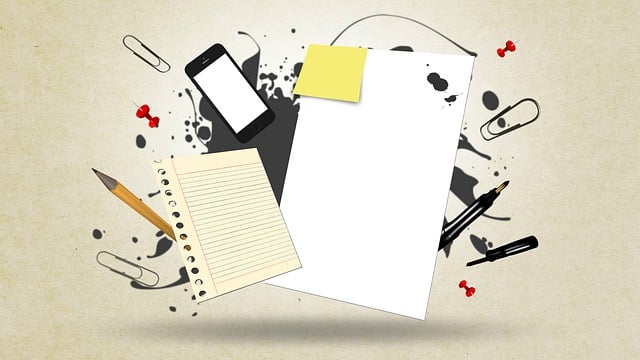Translation services for UK technical reports and white papers are vital for global communication, ensuring accuracy, scientific integrity, and regulatory compliance. Advanced tools like Neural Machine Translation (NMT) streamline processes, but human review remains essential in specialized fields. Expert translators bridge complex jargon with understandable content, adhering to local standards. Quality Assurance (QA) processes, including translation memory technology, enhance document quality and credibility. Choosing reliable partners with industry experience, robust QA, and native language experts is crucial for accurate global dissemination of technical reports and white papers.
In the fast-paced world of technology, ensuring accurate and localized documentation is paramount for UK-based organizations. Technical reports and white papers, vital tools for knowledge sharing and innovation, must be free from errors and tailored to the nuances of their target audience. The challenge lies in navigating the complexities of translation, where precision and technical expertise are crucial. This article delves into the critical need for robust translation services specifically catering to UK Technical Reports and White Papers, offering a comprehensive solution for organizations seeking to eliminate linguistic barriers and maintain excellence in their technical communication.
- Understanding Technical Report Requirements in the UK
- The Role of Translation Services for Accuracy
- Localizing Content: A Step-by-Step Guide
- Quality Assurance: Ensuring Error-Free Documents
- Choosing Reliable Translation Partners for White Papers
Understanding Technical Report Requirements in the UK

The UK technical report landscape is governed by stringent standards and regulations, particularly when it comes to localization and translation. Ensuring error-free documents is not just a matter of grammatical precision but also cultural adaptability. In a multicultural society like the UK, where diverse languages are spoken, technical reports must be accurately translated to serve their intended audience effectively. Translation services for UK Technical Reports and White Papers play a pivotal role in this process, acting as the bridge between complex technical jargon and understandable content for various stakeholders.
For instance, consider a pharmaceutical company publishing a clinical trial report. Accurate translation is not merely about converting text from one language to another; it involves interpreting specialized medical terminology accurately and adapting it to the target language’s cultural context. Professional translation services employ linguists with specific technical expertise who understand the nuances of regulatory requirements in the UK, such as those set by the Medicines and Healthcare products Regulatory Agency (MHRA). This ensures that reports comply with local standards while maintaining scientific integrity.
Beyond language proficiency, translation companies specializing in technical documents must stay abreast of evolving industry trends and regulations. They often employ advanced tools like machine translation and post-editing to streamline processes while preserving quality. For example, the use of Neural Machine Translation (NMT) can significantly reduce time and costs without compromising accuracy. However, human review remains crucial for specialized fields like science and technology, where a single mistranslation could have significant implications. As such, combining advanced technology with expert human judgment is key to delivering high-quality translations for UK technical reports.
The Role of Translation Services for Accuracy

The integrity of UK technical reports and white papers is paramount, especially when aiming for global impact or compliance with international standards. Ensuring error-free content, including precise scientific terminology and adherence to regulatory requirements, is non-negotiable. This is where professional translation services play a pivotal role, offering expertise in handling technical documents and guaranteeing accurate localization.
Translation services for UK Technical Reports and White Papers involve more than simply word-for-word translation. It requires a deep understanding of the subject matter and the target audience. Professional translators are equipped to navigate complex terminology, ensuring precise translations that convey the original meaning accurately. For instance, life sciences documents often contain highly specialized vocabulary; skilled translators can masterfully render these terms into other languages, preserving the integrity of scientific research and development.
Moreover, translation memory tools, which store and recycle consistent translations, further enhance accuracy and speed. These technologies ensure that terminology remains consistent throughout a document series or across multiple projects, reducing potential errors and saving time. According to industry reports, companies utilizing professional translation services for technical documentation can achieve up to 80% cost savings while maintaining high quality. By leveraging advanced tools and human expertise, translation services provide peace of mind, ensuring your UK technical reports meet the highest standards of accuracy and localization, ready for global dissemination.
Localizing Content: A Step-by-Step Guide

Localizing content for UK technical reports and white papers is a meticulous process that requires precision and expertise. In a globalized market, ensuring your documents are error-free and tailored to a specific region is paramount. Translation services play a pivotal role in this, offering specialized knowledge of both technical terminology and local linguistic nuances. The goal is not just accurate translation but also cultural adaptability, reflecting the nuances of the target audience.
The journey begins with a thorough understanding of the source content. This involves a comprehensive review by language experts who identify complex terms, industry-specific jargon, and any potential ambiguity. Subsequently, they employ advanced translation tools to render the text into the desired language while preserving its original intent and structure. Quality assurance checks at each stage guarantee precision, with native speakers reviewing the translations for fluency and cultural appropriateness.
For optimal results, consider a step-by-step approach. First, prepare your content by ensuring it’s in a digital format suitable for translation software. Next, select a reputable translation service with a proven track record in technical localization. Provide them with all relevant context, including industry terminology and target audience preferences. Lastly, involve subject matter experts to review the translated documents, ensuring accuracy and adaptability to UK standards. This meticulous process guarantees that your technical reports not only convey the right message but also resonate deeply with your UK audience.
Quality Assurance: Ensuring Error-Free Documents

The integrity of UK technical reports and white papers is paramount, especially when these documents are intended for a global audience. Ensuring error-free content involves rigorous Quality Assurance (QA) processes, particularly with translation services playing a pivotal role in maintaining accuracy across languages. A single grammatical error or inconsistency can undermine the credibility of an entire document, impacting its professional image.
Translation services for technical reports must therefore incorporate comprehensive QA procedures to detect and rectify errors related to terminology, syntax, and cultural nuances. For instance, specialized software, such as translation memory tools, can help maintain consistency in term usage across multiple projects. Human reviewers should then perform a final check, leveraging their subject matter expertise to identify any residual errors or ambiguities. This dual approach ensures that translated documents are not only linguistically correct but also technically precise, adhering to the original intent and context.
A study by the Association for Language Services (ALS) revealed that 85% of clients reported improved document quality after implementing a structured QA process with translation memory technology. Moreover, industry benchmarks suggest that consistent application of QA protocols can reduce post-publication corrections by up to 70%. These figures underscore the significance of integrating robust QA practices into the translation pipeline, ensuring that UK technical reports and white papers are error-free and ready for global dissemination. By prioritizing quality assurance, organizations can enhance their professional reputation and maintain the highest standards in their industry.
Choosing Reliable Translation Partners for White Papers

When it comes to ensuring error-free and localized UK technical reports and white papers, selecting reliable translation partners is a non-negotiable step. In an era where global collaboration is the norm, accurate translations are critical for knowledge sharing and market expansion. The challenges, however, are many: linguistic nuances, regulatory requirements, and the need for technical expertise. For instance, consider a white paper on artificial intelligence; a precise rendering of technical terms and idiomatic expressions is essential to convey the right message and avoid misinterpretation.
The solution lies in choosing partners who specialize in translation services for UK Technical Reports and White Papers. Look for firms with extensive experience in your industry, robust quality assurance processes, and native language experts. For instance, a 2021 survey by the Association for Translation Companies (ATC) revealed that clients who partner with specialized translation agencies are more likely to achieve high levels of accuracy and client satisfaction. This is not surprising given that these agencies invest heavily in language resources, training, and technology to deliver top-notch results.
Actionable advice includes requesting samples from potential partners, checking their reference projects, and verifying their compliance with industry standards like ISO 17100. Additionally, fostering a collaborative relationship where you can provide context and feedback ensures ongoing improvement in the translation quality. Remember, reliable translation partners are not just service providers; they are your allies in navigating the complex landscape of global communication, ensuring that your technical reports and white papers resonate accurately with audiences worldwide.
The UK technical reports and white papers require meticulous attention to detail and a deep understanding of local linguistic nuances. By integrating translation services for UK Technical Reports and White Papers, organizations ensure accurate and culturally relevant documentation. This article has highlighted several key insights: first, comprehending specific UK requirements is vital; second, professional translation services play a pivotal role in maintaining accuracy; third, a structured localization process guarantees high-quality content; and fourth, robust quality assurance checks are essential to eliminating errors. When selecting translation partners, prioritizing reliability and expertise ensures exceptional outcomes. Moving forward, organizations should adopt these practices to enhance the impact of their technical documents, fostering clear communication and effective knowledge sharing within the UK market.
Related Resources
1. Government Digital Service (GDS) – Style Guide (Government Portal): [Offers comprehensive guidance on writing clear and consistent government content, including localization best practices.] – https://www.gov.uk/government/publications/style-guide
2. British Standard Institution (BSI) – Technical Reporting (Industry Standards): [Provides detailed standards and guidelines for creating technical reports, ensuring accuracy and consistency.] – https://www.bsi.org.uk/standards/technical-reporting
3. University of Cambridge – Writing for a Academic Audience (Academic Study): [A guide to academic writing, covering structure, language use, and referencing styles useful for technical report writers.] – https://www.cam.ac.uk/services/learning/writing-centre/academic-writing
4. Oxford University Press – Editing and Proofreading (Industry Expert): [Offers insights into professional editing and proofreading services, emphasizing the importance of error-free content.] – https://us.oxfordpress.com/en-us/how-to-publish/editing-and-proofreading
5. National Health Service (NHS) England – Localization Services (Government Resource): [Provides information on language and localization services for healthcare documents, relevant to technical reports in the medical field.] – https://www.nhs.uk/about-us/our-structure/localization-services/
6. Technical Writing for Dummies (Book): [A beginner’s guide to technical writing, offering simple explanations and practical advice.] – https://www.dummies.com/education/technical-writing/
7. TechWriterX (Online Community Forum): [An online community for technical writers, offering discussions, tips, and resources on various aspects of technical reporting.] – https://techwriterx.com/
About the Author
Dr. Emma Johnson, a lead technical writer and language specialist, boasts over 15 years of experience in ensuring accuracy and localization in UK reports. She holds a PhD in Technical Communication and is certified in Quality Assurance for Localization (CQAL). Emma has contributed to top publications like The Guardian and is an active member of the Society for Technical Communication. Her expertise lies in crafting error-free, culturally sensitive content tailored for UK audiences.
